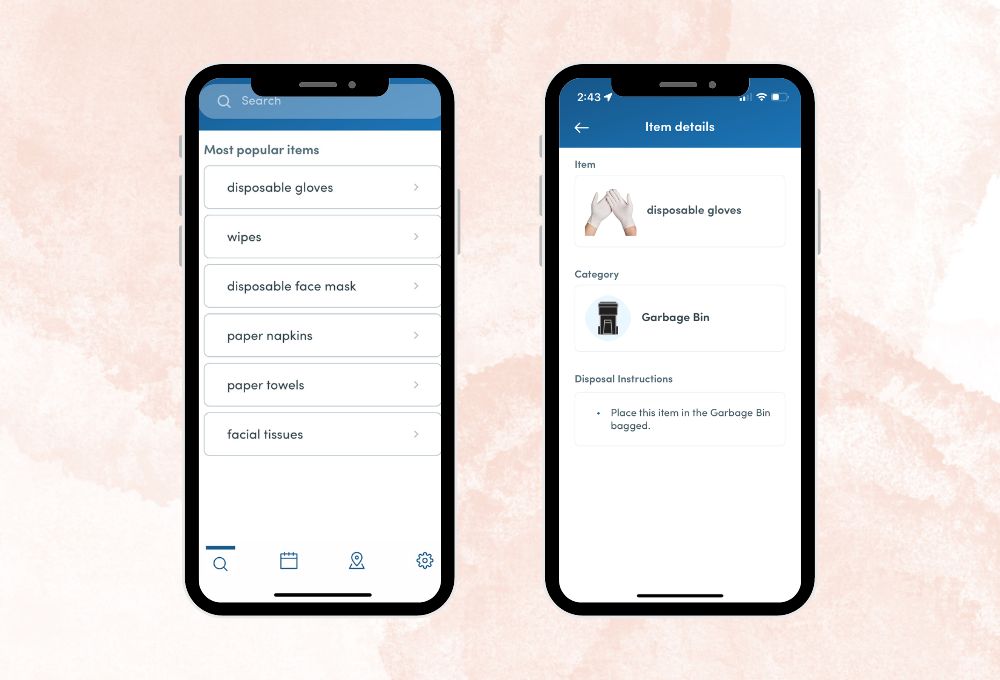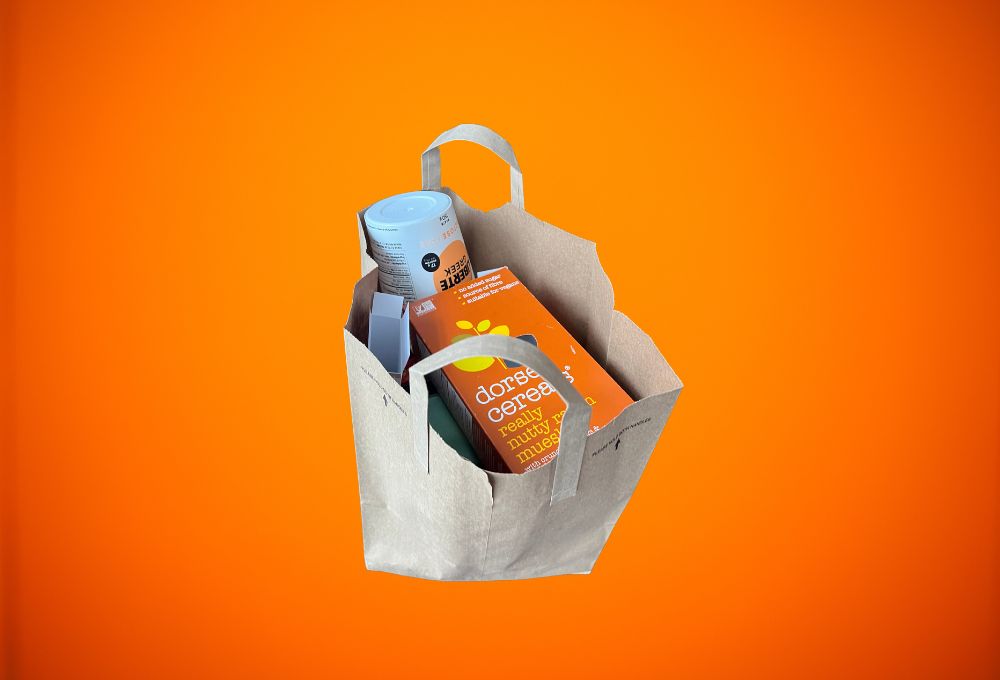How can I dispose of my household garbage without needing a plastic bag? This was a tricky one for me! For the past few years, I have been reusing grocery bags to trash my non-recyclable garbage but since the supermarkets are no longer giving plastic bags, this is not an option anymore.
So I’ve been doing research on this topic for a while, and I came across some interesting alternatives that I would like to share with you. Let’s explore what methods for disposing of your household garbage without relying on plastic bags work best for you.
Why Avoid Plastic Bags for Garbage Disposal?
Plastic bags are a major environmental concern due to their non-biodegradable nature. When they end up in landfills or oceans, they take hundreds of years to decompose fully, releasing harmful chemicals and microplastics in the process. By avoiding plastic bags for garbage disposal, we can prevent the accumulation of plastic waste and minimize its negative impact on ecosystems.
Alternative Methods for Disposing of Household Garbage
Sorting and Segregating Waste
The first step in a proper garbage disposal is sorting and segregating waste. This process involves categorizing recyclable materials, organic waste, and non-recyclable items. By separating these components, it becomes easier to manage and dispose of them using environmentally friendly methods.
It is also important to learn how to properly dispose of each of these categories. The instructions will vary from one city to another depending on the type of facilities and technologies that they have. Most cities will have this information online or on even on an app where you can search by specific item.

Composting Organic Waste
One effective way to dispose of organic waste is through composting. By setting up a composting system in your backyard or utilizing community composting programs, you can transform kitchen scraps, yard trimmings, and other biodegradable materials into nutrient-rich compost. This compost can then be used to enrich the soil in gardens and plant beds.
If you live in a condo, though, it may not be possible to have your own composting system. In this case, the alternative is to search what is the nearest community composting facility.
Recycling Paper and Cardboard
This is an easy one! Paper and cardboard are highly recyclable materials. Instead of throwing them in plastic bags, collect and bundle them separately for recycling. Many municipalities have curbside recycling programs or drop-off locations specifically for paper and cardboard recycling. Condos also have specific drop-off locations for different materials.
By recycling these materials, you contribute to the conservation of natural resources and reduce the demand for new paper production.
Reusing Containers and Packaging
Before disposing of containers and packaging, consider whether they can be reused. Items such as glass jars, plastic containers, and cardboard boxes can often serve multiple purposes. They can be used for storing leftovers, organizing small items, or even as packaging for gifts. By reusing these items, you reduce waste and extend their lifespan.
If they can’t be reused or repurposed, give them a good rinse and place them in the correct recycling bin.
Donating or Selling Usable Items
Instead of throwing away items that are still in good condition, consider donating them to charitable organizations or selling them through online platforms. Clothes, furniture, appliances, and other household items can find new homes and serve a useful purpose for others. This not only reduces waste but also promotes a circular economy.
Using Biodegradable or Compostable Bags
If you find it necessary to use bags for certain types of garbage, opt for biodegradable or compostable alternatives. These bags are designed to break down naturally, minimizing their environmental impact. However, it’s important to check the labels and ensure they meet proper certifications for compostability.
Utilizing Bulk Bins and Refill Stations
When shopping for groceries and household items, consider using bulk bins and refill stations instead of individually packaged products. This reduces the amount of packaging waste generated and allows you to purchase only the quantity you need. Bring your own reusable containers and bags to fill them up with grains, nuts, spices, detergents, and other products.
Creating DIY Reusable Garbage Bags
You can create your own reusable alternatives. Use sturdy fabric, such as canvas or old bedsheets, to sew custom-sized bags that fit your trash cans. These can be washed and reused multiple times, reducing the consumption of single-use plastic bags.
You can also repurpose other reusable bags that you may already have at home, like IKEA bags.
However, this method is best suitable for non-wet garbage.
Using other things you already have at home
This method was one of my favorites. As a pet lover, I am usually surrounded by kibble bags. I learned I can reuse those for trashing wet garbage, or things that can’t be recycled.
Another idea is to use plastic bags from frozen products since those are not typically candidates for recycling.
What else can we do
Reducing Overall Waste Generation
The most effective approach to garbage disposal without plastic bags is to minimize waste generation in the first place. Make conscious choices to reduce consumption, avoid excessive packaging, and opt for products with minimal environmental impact. Embrace the principles of a zero-waste lifestyle by practicing the 5 R’s: refuse, reduce, reuse, recycle, and rot (compost).
Promoting Awareness and Education
Lastly, spreading awareness about the harmful effects of plastic bags and advocating for sustainable waste management practices is essential. Educate your family, friends, and community about the alternatives to plastic bags for garbage disposal. Encourage them to adopt environmentally friendly habits and participate in local initiatives aimed at reducing plastic waste.
Final Thoughts
Disposing of household garbage without relying on plastic bags can be tricky at first but it is not impossible. By implementing alternative methods such as sorting waste, composting, recycling, reusing, and reducing waste generation, we can significantly reduce our plastic footprint and contribute to a cleaner planet.
It’s time to break free from the convenience of plastic bags and embrace sustainable practices that prioritize the well-being of our ecosystems.
FAQs
Yes, avoiding plastic bags for garbage disposal is essential to reduce plastic pollution and protect the environment. Plastic bags take hundreds of years to decompose, contributing to landfills and polluting oceans and other natural habitats.
While reusing plastic bags is better than using them once and throwing them away, it’s still preferable to avoid their use altogether. Plastic bags are challenging to recycle, and their production has a significant environmental impact.
Biodegradable bags can be a suitable alternative if they meet proper certifications for compostability. However, it’s important to note that biodegradable bags may still take a long time to break down in landfills, and composting them requires specific conditions.
Start by leading by example and sharing information about the harmful effects of plastic bags. Organize local awareness campaigns, engage with community organizations, and advocate for sustainable waste management initiatives. Education and collective effort can bring about positive change.
In addition to avoiding plastic bags for garbage disposal, you can switch to reusable alternatives for shopping bags, water bottles, and food containers. Choose products with minimal packaging, recycle diligently, and support businesses that prioritize sustainability.

